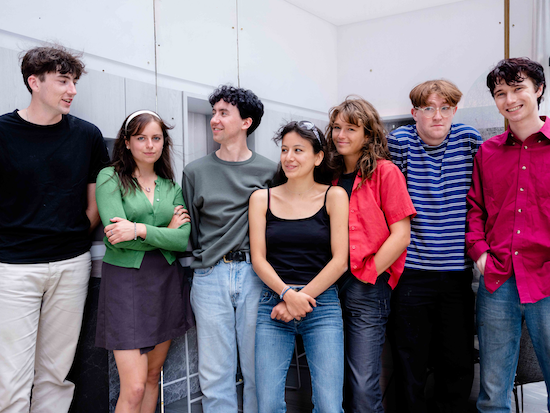
From the fertile soils outside an unassuming concert venue called The Windmill, in South London, music history is continuously being made. A rather unremarkably designed structure adorned with vividly bright paint and a penchant for flair, the Windmill has had its fair share of success stories. Indie bands such as the Bloc Party, Stereolab and the Vaccines made numerous appearances there during their respective heights of popularity between the late 1990s to the early 2010s.
However, in recent years, it has mainly been credited with fostering the resurgence of the London guitar scene. It has claimed this title by keeping a strictly open perspective. The venue essentially allows any underground indie band that the venue deems “good” to play their stage, allowing for real innovation, whereas corporate venues selectively pick bands for profit. Critically acclaimed bands have risen from truly grassroots origins in one of the last independent venues in the world.
The artist that best exemplifies the values of The Windmill is Black Country, New Road. The post-punk band with albums “Ants From Up There” and “For the first time” is now one of the most promising acts of the decade. However, they were not always this beloved.
Genreless and clearly well-educated, they were seen as little more than a group of seven people in their twenties without a stable record label and with little recognition in the underground circuit. Despite these shortcomings, The Windmill saw their grand potential and launched their careers.
Soon, they were selling out shows in the 150-person capacity venue and touring the United Kingdom, having made a name for themselves by their visceral performances in The Windmill. They are now recognized as an earnest, technically advanced group with two UK Top 10 albums and a Mercury Prize nomination. Five years and two studio albums later, the band has captured the heart of the indie community.
The magic of the venue is that, by keeping such an open viewpoint, it launches even the most niche of artists into recognition. With a legitimately open viewpoint, The Windmill is an exceedingly important establishment in the zeitgeist that is the constantly evolving music industry.
The Windmill is now facing some challenges in a fight to stay open after the pandemic, but, for the coming years, it will likely continue nurturing the careers of new artists.




